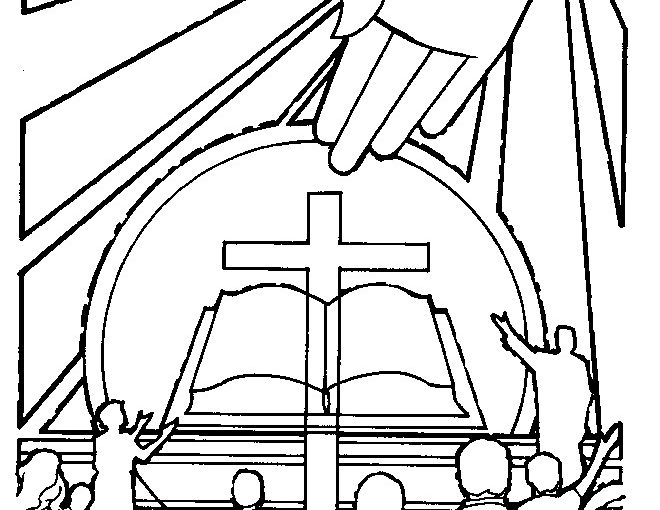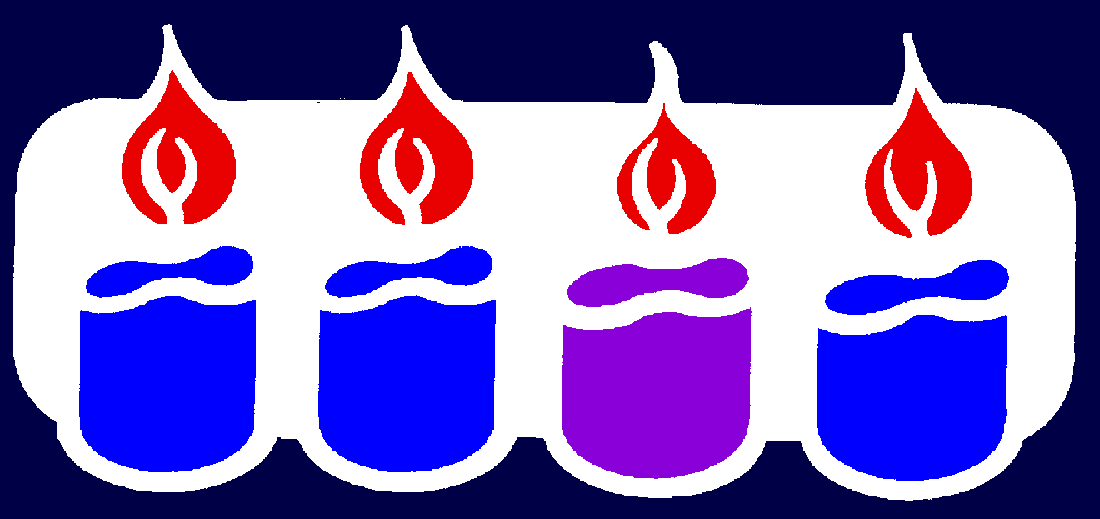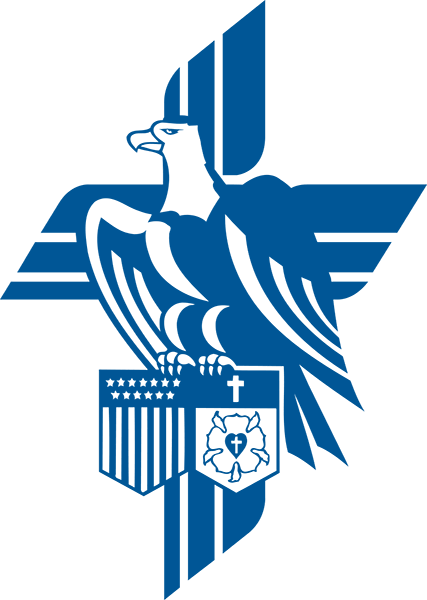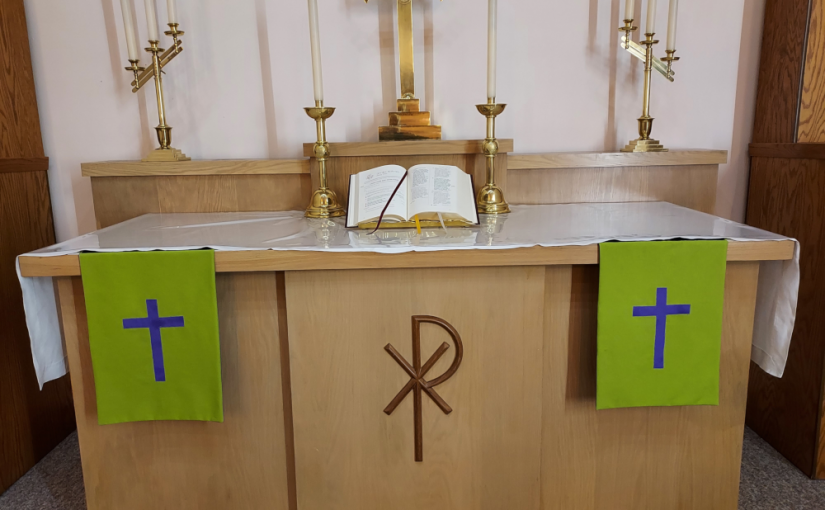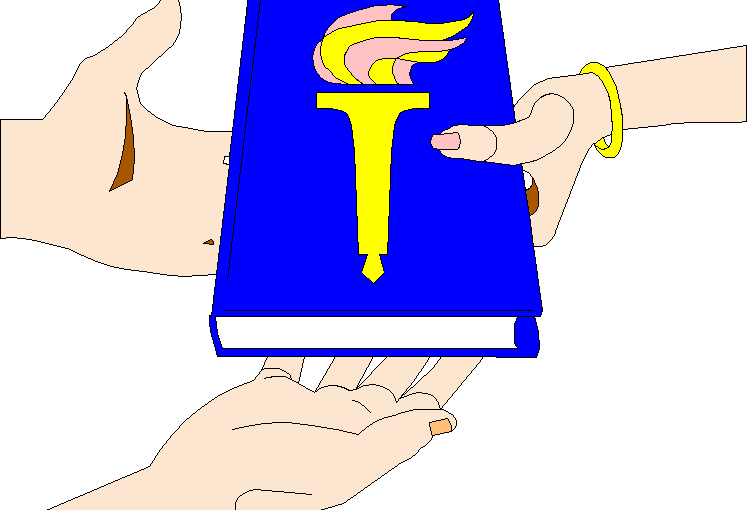Years ago, when I was a real person with a first name, I had the pleasure of taking a number of classes from Dr. Donald Pratt, a faculty member at Princeton University. AT&T Bell Laboratories had an education department which contracted with a number of specialists to teach the skills needed in the company.
One of the courses was Techniques of Instruction, where we learned how to best use our class time. Dr. Pratt told us to have a proper ratio of explanation, exercising, and evaluation. He also reinforced the idea that you can teach from any student response, no matter how different it might be from the expected answer.
In explaining new material, you go from the known to the unknown. This is why we are discussing the doctrine of the Church as found in the liturgy. Everyone who has been exposed to the liturgy has some idea what is happening, even if they don’t know the details. “Oh, I remember the pastor facing the altar some times, and facing the congregation some times.” Thus can you teach of the priestly (facing the altar) and prophetic (facing the congregation) aspects of the Office of the Ministry.
To exercise the student’s understanding and growth in learning, we assign certain tasks. “Using your concordance (list of words in the Bible with verse reference) or other reference tools, find parallel passages to Ephesians 2:8-9 where Paul says we are saved by grace and not our own works.” Each learner will find various passages, thus reinforcing both the use of the Biblical study tools and the concept of salvation by grace through faith for the sake of Christ.
As teachers, we evaluate the progress of the learner by asking specific questions. (Question: “What do you think Paul meant when he wrote, ‘For by grace you are saved through faith?'” Answer: “Grace is God’s love which He gives to us although we don’t deserve it. We don’t earn salvation from sin and death, it is a gift. Even the faith which receives God’s love is a gift.”) (Question: “What are the two great teachings in the Bible?” Answer: “Law and Gospel.”) Dr. Pratt suggested we never ask, “Any questions?” If no one can answer the specific questions, the instructor has done a bad job of teaching.
In the Divine Service we have the rote learning of the Ordinary of the Mass, those elements of the liturgy which remain the same week to week. In the Divine Service we hear different readings, sing different hymns, and listen to the sermon. In the Divine Service we receive the blessings of God’s rich grace as we are forgiven, as we partake of the Lord’s Supper for the strengthening of our faith. In the Divine Service we have no opportunity to exercise our knowledge or to evaluate what we know. There is no dialog about the sermon.
Thus, to really learn what the Church believes, teaches, and confesses, we need to attend Bible Class. Yes, take that second hour on Sunday morning, grab a cup of coffee and a cookie or other tasty delight, sit down, and learn. For years, I have had the practice of allowing any question at the beginning of Bible Class. “Pastor, in your sermon you said … what does that mean?” What better way to learn? What better feedback can I have to improve my writing or teaching abilities?
Since the church opened following the shutdown for COVID, we have been studying the Augsburg Confession on Sunday morning. As a congregation we claim to adhere to the understanding of the Bible as presented to Emperor Charles V on June 25, 1530. It is mentioned in the constitution of this congregation, and is affirmed at the ordination or installation of a pastor. So, what is in it? How does a 500 year old document remain relevant today? What educational rabbit holes can we jump down based on our learning? How does our understanding of the doctrines mentioned in the Augsburg Confession affect us in a practical way?
Wednesday mornings a group gets together to look at current events in the light of the Bible. Again, this is practical theology. What does the “woke” culture mean to Christians? What is the form of persecution of the Church in the United States? (You don’t think we are persecuted? Join us on Wednesday!)
On Tuesday morning we have a study group and the Lord’s Supper at the Sunrise Terrace. If you can’t get to Church, the Church comes to you. Although several of the people in the group are able to attend the Divine Service on Sunday, some cannot. Yet, they take the opportunity to learn, even as they avail themselves of the weekly opportunity to receive the forgiveness of sins and the assurance of everlasting life by receiving Christ’s body and blood for their salvation.
Going to church is great, but it isn’t enough if you want to learn. You really need to take the time to dig into the Bible. More importantly, you need to discuss what you have learned, and reinforce that which you have heard.
We offer many opportunities to join a Bible Study group. If one of our existing studies doesn’t meet your schedule, we can start a group which does. In the end, you will have a better understanding of God’s rich grace and mercy, even as you receive the assurance of life everlasting.
